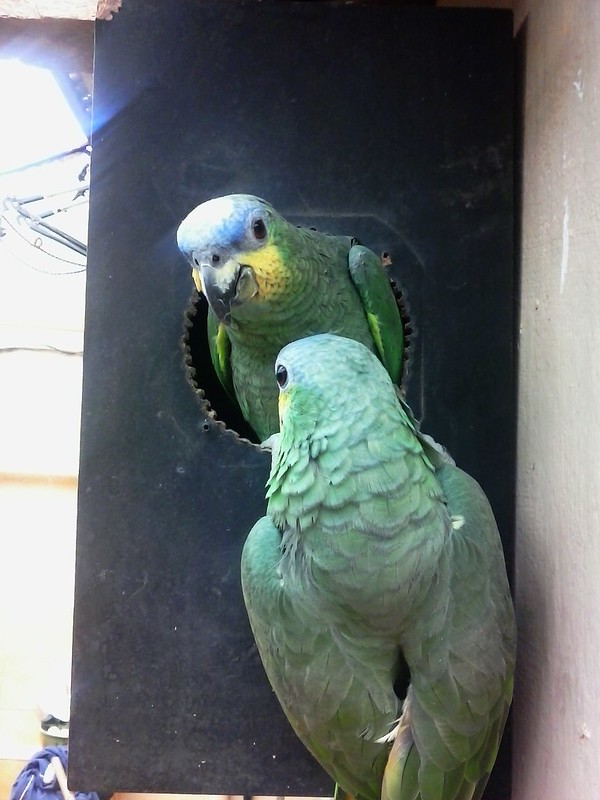 |
| Photo by javierdefrancisco304 |
But, better be careful in choosing and buying parrot pets on impulse because caring for them can be an overwhelming and stressful task for you. Before you bring home a parrot to become your pet, make sure that you do a little research on its types and caring procedures so you will know what is the most suitable parrot species for you.
Parrot shopping guidelines
Every parrot—or any pet or animal for that matter—is different. Thus, they require special needs and caring. You must know by now that choosing a parrot for a pet is a lifelong commitment so it’s advisable that you do not make hasty decisions in buying one. Since buying a parrot requires a good decision-making, here are some things that can get you started:
1. A parrot’s “noise” is one of the major considerations in choosing any pet parrot. Majority of the Conure species and Quaker Parakeets produce ear-piercing screeches that you might not tolerate.
Amazons, Macaws, Cockatoos, and African Greys, one the other hand, give out information about you that can smear your reputation while Pionus, and some medium-sized Poicephalus like Senegals and Meyers, are known to create lesser noise compared other parrots. Budgies, Lovebirds, and Parrotlets, on another hand, are famous for not having very loud screeches because they do not possess a real ability to scream.
2. The next basic thing to consider when you’re pondering over buying a pet parrot is the mess the bird will create. Don’t be shocked if you see at least one-third of the food you give to the parrot will end up scattered on the floor.
This “food-scattering” is just part of a parrot’s nature of being experimental or just being naughty. Aside from food particles, feathers will also be present everywhere. If you are not used to having pets as messy as parrots and you are about to have one, you might want to consider placing its cage where cleaning materials are accessible.
3. You should also consider the attention you can give and the attention your parrot pet will need. Being social flock animals, parrots are known to enjoy the utmost attention. You must know when to pay attention to your pet parrot because they become easily depressed, lazy, and untrusting. Give them enough freedom to explore and interact with you.
4. You also be prepared to maintain the cleanliness of your pet parrot. No bird—or any pet for that matter—will be happy and healthy if they are confined to a soiled, dirty cage. Putting newspapers under their cage is the easiest way to get rid off soiled perches but make sure you don’t use colored papers because they contain toxins that can be harmful to your parrot pet.
5. Lastly, contemplate on feeding your parrot pet. Far from common perception, birds—especially parrots—cannot live in birdseed alone. Daily pelleted or seed diet combined with a variety of dark green, orange, and yellow vegetables or cooked brown rice, pasta, and beans are best for your winged pet.

No comments:
Post a Comment